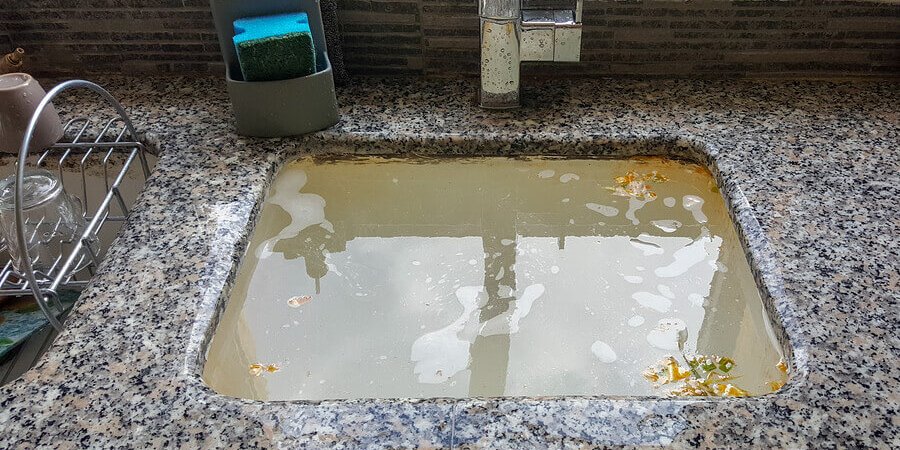We've stumbled upon this great article on What I learned from trying to deal with a clogged drain listed below on the internet and figured it made sense to write about it with you in this article.

Intro
Handling an obstructed drain can be an aggravating experience, disrupting everyday tasks and possibly causing damage to your residential property. However, before reaching out to plumbing experts, there are steps you can take to deal with the concern yourself. In this guide, we'll explore do it yourself services and preventive measures to deal with an obstructed drain successfully.
Recognizing the Concern
The very first step in addressing an obstructed drain is identifying the signs. Slow water drainage, gurgling sounds, foul odors originating from drains, or water backing up are common signs of a blocked drain. Recognizing these indications early can help avoid additionally difficulties.
Typical Sources Of Obstructed Drains
Understanding the elements that contribute to drain blockages is crucial for reliable resolution. Common culprits include hair, soap scum, oil, food debris, and international things like sanitary products or paper towels. Tree roots invading below ground pipelines can likewise cause considerable obstructions.
DIY Solutions
For small obstructions, numerous DIY services can be efficient. Putting boiling thin down the drainpipe can help dissolve oil and particles. Sodium bicarbonate and vinegar or a mixture of salt and cooking soft drink can act as all-natural cleansers. Making use of a bettor or pipes snake to dislodge obstructions is another option.
Tools and Devices
Having the right devices handy can make do it yourself drain cleaning up a lot more reliable. A bettor is a functional tool for getting rid of clogs in sinks, toilets, and showers. A pipes snake or auger can reach deeper blockages, while drainpipe cleaning chemicals can be utilized carefully for stubborn obstructions.
Preventive Measures
To stay clear of future clogs, embracing preventive measures is important. Set up drainpipe guards or strainers to capture hair and debris before they go into the pipelines. On a regular basis flush drains pipes with warm water to liquify oil accumulation, and prevent taking care of grease or solid waste down the tubes.
When to Call a Professional
While do it yourself services can fix minor clogs, certain indications suggest the need for expert help. Relentless obstructions, foul odors in spite of cleansing efforts, or multiple drains pipes supporting concurrently are warnings that warrant experienced intervention.
Picking the Right Pipes Service
When picking a pipes solution, consider variables such as experience, licensing, and customer reviews. Select a respectable plumbing professional with a record of high quality handiwork and clear prices techniques.
Expense Considerations
The cost of professional drainpipe cleaning services can vary depending upon the intensity of the blockage and the plumbing's rates. Demand quotes from numerous suppliers and ask about any added fees to ensure transparency and prevent shocks.
Safety and security Precautions
When attempting do it yourself drainpipe cleansing, focus on safety. Put on protective handwear covers and eyeglasses to avoid contact with hazardous chemicals or microorganisms. Never blend different drain cleansing items, as this can produce hazardous fumes.
Situation Studies
Real-life instances highlight the effectiveness of DIY options and the importance of timely expert intervention in settling drainpipe clogs.
Conclusion
By following the tips described in this guide, you can effectively tackle obstructed drains and protect against future pipes issues. Whether selecting DIY solutions or looking for professional aid, timely action is vital to preserving a healthy plumbing system and maintaining the honesty of your home.
HOW DO PLUMBERS AND DRAINAGE EXPERTS CLEAR BLOCKED DRAINS?
Most of us have dealt with a backed up drain at some point in our lives! Whether it’s in our home or at our business, when the toilet begins to overflow or the sink doesn’t drain properly, we ultimately seek help from professionals to clear wastewater lines and get things flowing again.
Sure, you can attempt every possible drain hack in the hopes that your line clears but, often, it’ll require more than just pouring something down the drain. Keep in mind too, that pouring acid-based liquid cleaners down your drain can result in even more problems. If unable to clear – and pass through – the clog, it’ll sit in the line and begin to eat away at the pipe. Calling a plumber or professional to clear your drain might be your last resort but it’s the proven result. So, what do they do, and what type of equipment do they use, to get rid of a blocked drain line?
How Do Plumbers And Drainage Experts Clear Blocked Drains?
To better understand exactly where the problem is located, experts will typically start with an assessment and a video sewer inspection. Using non-invasive equipment that enters and exits through the pipe, these cameras offer a look inside the pipe and can spot anything from buildup, to forming clogs, to tree roots to small holes that could be a future problem – in real-time. It can see up to 150 feet of even the hard-to-reach places of the line, so there’s nowhere to hide.
https://www.zoomdrain.com/blog/2023/january/how-do-plumbers-and-drainage-experts-clear-block/
:max_bytes(150000):strip_icc()/how-to-unclog-a-drain-2718779-12-cef70dd9591b4c60b7ea92ebced928d8.jpg)
I was guided to that article on 8 Tips For Clearing A Blocked Drain from someone on another web address. Don't hesitate to pause to share this blog entry if you liked it. Thanks so much for going through it.
This Website